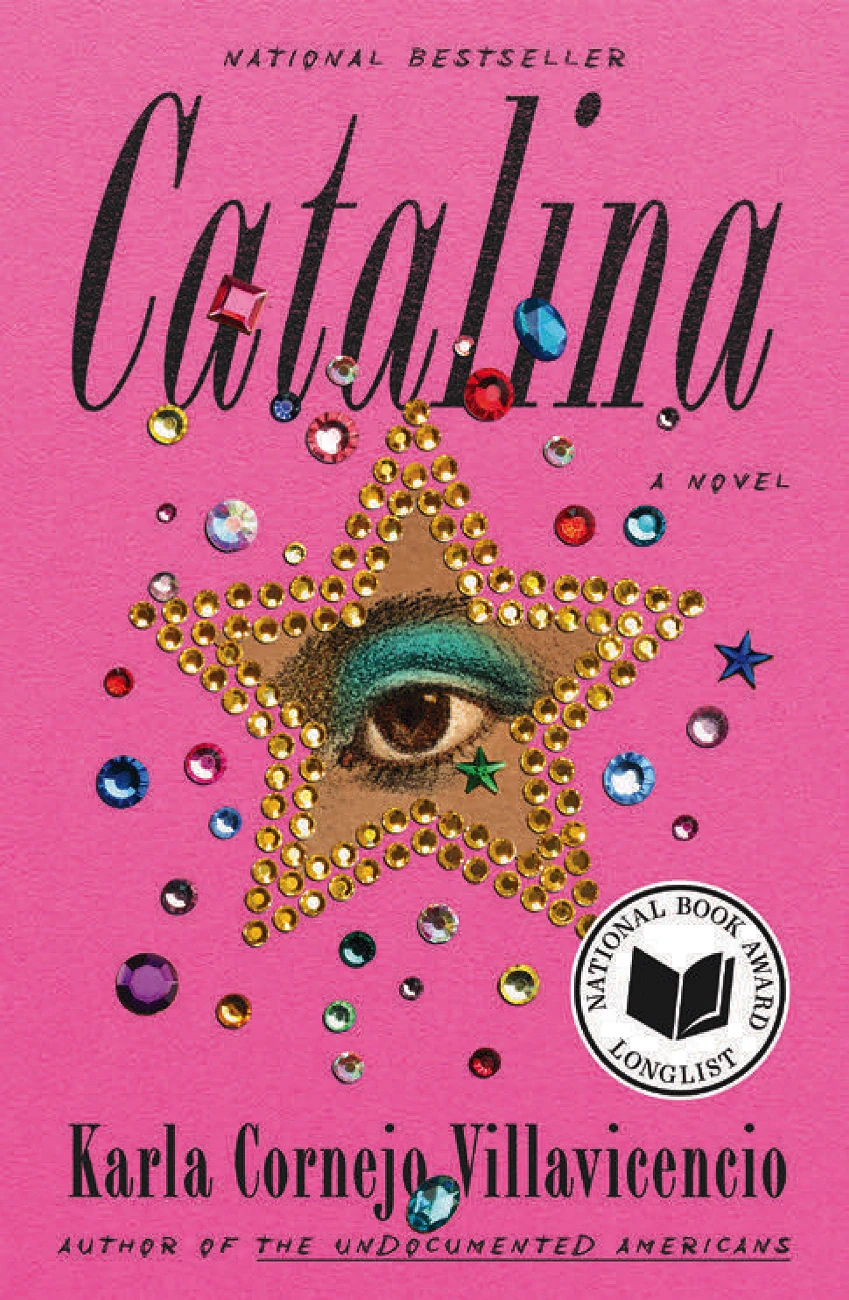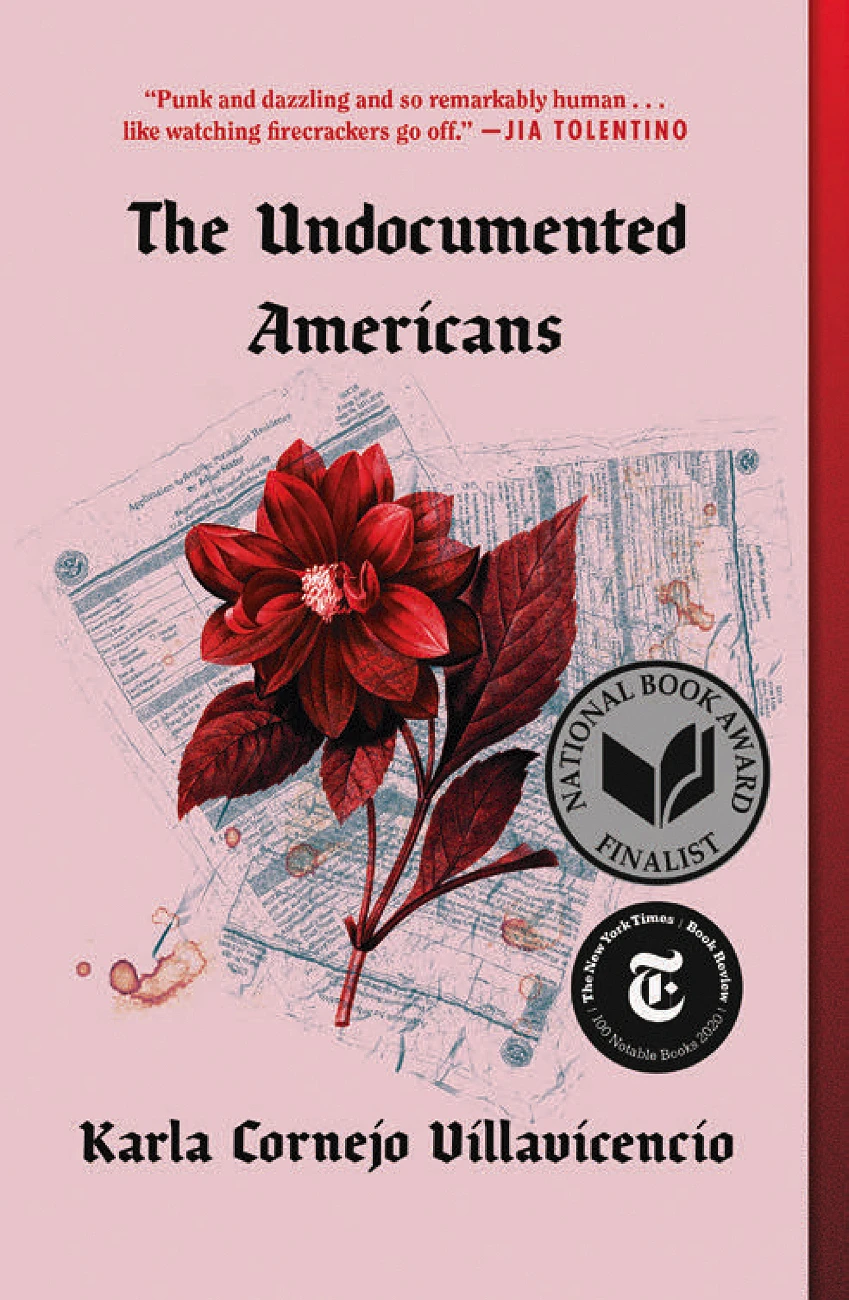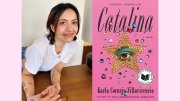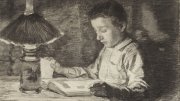In Karla Cornejo Villavicencio’s 2024 novel Catalina, the titular protagonist—a spirited Harvard senior juggling schoolwork, romance, and her and her grandparents’ undocumented immigration status—feels a certain affinity for former Secretary of State Henry Kissinger ’50, Ph.D. ’54.
Catalina arrives in the United States from Ecuador at the age of five, joining her grandparents in Queens after her parents die in a car accident. Throughout her childhood, her grandfather—a passionate amateur historian—lectures her on his favorite topics, from Gabriel García Márquez’s literary career to Kissinger’s role in propping up Latin American dictatorships.
“Of course I thought Henry Kissinger was brilliant. Boring men don’t interest me,” Catalina narrates, in the novel’s lush, wry, sometimes frenzied inner monologue. “He was an immigrant child with a traumatic past making his way up the ladder in America. Let’s say we had a kinship.”

From this relationship, Catalina draws strength: she imagines a fleet of Henry Kissingers “in a storage container by the highway inside my brain,” running on treadmills to power “my grit, resilience, and Protestant work ethic.”
Throughout her career, Cornejo Villavicencio ’11 has often done something similar, claiming legacies that some might say don’t belong to her, alchemizing them into work that is funny, furious, her own.
Like Catalina, she grew up as an undocumented immigrant in Queens—but with her parents and younger brother—and was a precocious student. As she progressed through her education—first at a private New York City high school, then at Harvard—she began to feel clichés about immigration cling to her. That as an undocumented student, she should be humble, insecure, unsure of her talent, grateful when someone noticed it.
During her senior year, she wrote an essay for The Daily Beast about being undocumented at Harvard. Soon came the inquiries about a memoir. But she sensed the shape of the story publishers wanted—and rejected them.
It was only after the 2016 election, on her own terms, that she decided to write a nonfiction account that she termed in her mind “the book.” It would be titled, simply, The Undocumented Americans.

She spent years traveling the country, embedding herself in communities of undocumented immigrants: those who cleaned up Ground Zero, those who suffered from the Flint water crisis, day laborers on Staten Island. In the book’s introduction, she writes about her dissatisfaction with the two dominant portrayals of undocumented life in the United States—either as the apex of the American dream, embodied by young people at places like Harvard, or as the tireless, faceless worker. “[S]ufferers or dreamers,” as she calls them.
Instead, she sought to capture undocumented Americans as they were: “warm, funny, dry, evasive, philosophical, weird, annoying, etc.” She writes, “I wanted to learn about them as the weirdos we all are outside of our jobs.”
But during the book’s press tour, journalists kept asking her questions about her “dreamer” narrative. Was she surprised when she got into Harvard? Did she experience “culture shock”? Was she unprepared compared to the prep school kids?
“I started saying that I thought it was my birthright to go to Harvard,” Cornejo Villavicencio says, “and they would push me and ask me why, and I would just respond with absurd things, because I was so annoyed that it was such a constant theme in everything that I was asked.”
Her next project, a novel, examined the material power such narratives can hold. In Catalina, the protagonist is navigating senior year at Harvard when her grandfather receives a deportation order.
At the time, Catalina is dating a boy named Nathaniel, the son of a renowned documentary filmmaker named Byron Wheeler. Catalina knows that for her grandfather to stand a chance, he needs public sympathy—and that Byron’s camera can help her get it. So together, she and Byron plan a short documentary about her last year at Harvard. Byron pitches it simply: “Dreamer risks losing it all.”
Catalina plays the “dreamer” role dutifully, packing up her dorm room on camera, crying as she answers prompts like “Tell us what you love most about your grandfather.” She swallows her discomfort with being a “poster child” to try to protect him.
Nathaniel, meanwhile, is working with a Harvard professor to try to decode khipus, ancient Inca recording devices made of knotted string. Catalina quietly roots against them, hoping they fail in their pursuit of clarity and meaning. It’s a desire for a sort of revenge—as she feels pressure to turn herself into a stereotype, easy to understand, she wants there to be something they can’t flatten, label, contain. “I hoped that for them, it remained an unfulfilled longing,” she narrates. “There were consequences to empire.”
Cornejo Villavicencio feels a similar protectiveness toward her own experiences. “There’s such great curiosity about my time at Harvard,” she says. “Understandably—it’s the most famous school in the world.” Catalina was a way to answer some of those questions while keeping her real experiences obscured.
That tension between intimacy and distance is at the heart of her work, she continues. “Part of what I try to do as a writer and a public figure is keep myself a little bit murkier,” she says, “a little bit behind a curtain.” She never shares her full self, carefully controlling what she discloses. “I like knowing that there are people who will read the book and never have their curiosity [about my real experiences] satiated,” she says. “Much like how in Catalina’s heart, she doesn’t want the khipu to ever be decoded.”
Lately, Cornejo Villavicencio has been struggling to write at all. The political climate has made it hard to create: “I’m a chaos of destructive energy and foreboding gloom, because there’s nothing for me to work on,” she says. “The writing is not coming out.” So she’s been reading and thinking about the “sanctuaries” that once helped her survive—especially her schools.
After Harvard, she enrolled in a Ph.D. program at Yale, not because she dreamed of becoming an academic but because she was undocumented and couldn’t work legally, and graduate school gave her health insurance and space to think.
“I didn’t want to do this,” she says, “but once I was here, it was an extraordinary sanctuary for me to read and write and develop my voice while I felt safe.” Her time at Harvard as an undergraduate offered that same sense of protection.
Cornejo Villavicencio is now a naturalized citizen through marriage. But in an era when the Supreme Court and the federal government are rolling back rights once considered settled, she says, she still doesn’t feel entirely at ease. “I became a citizen through gay marriage with my gay spouse,” she says. “So I do feel that my sense of security is still on precarious ground.”
And she thinks about those with even less stability—including international and undocumented students at Harvard, who no longer feel the safety she once found in her dorms and classrooms, which she remembers as places of “deep intellectual love and freedom.”
And for those who might argue she didn’t belong there in the first place, she has a response: “I’d venture to say that Harvard alumni like me—and Henry Kissinger—enrich the legacy for the students who are there, and those to come,” she says. “So I think Harvard should keep accepting immigrant students, unless they have something against me or Henry Kissinger.”









